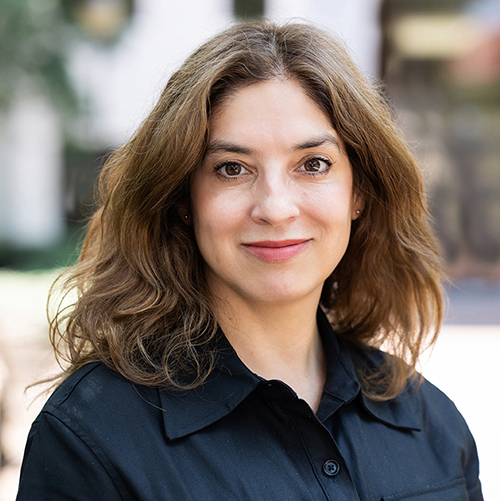Xochitl Marsilli-VargasAssociate Professor of SpanishDirector of Graduate Studies
Biography
Dr. Marsilli-Vargas was born and raised in Mexico City. Her scholarly work centers on the reception and circulation of health discourses, listening practices, media technologies, intercultural communication, immigration, vulnerability, and linguistic analysis. The empirical basis of her research has been Mexico, the United States, and Argentina, where she has conducted extensive ethnographic fieldwork in rural, institutional, and urban contexts including U.S. Latino/a/x populations.
Dr. Marsilli-Vargas holds a Licenciatura in Social Anthropology from the Escuela Nacional de Antropología e Historia in Mexico City, where she wrote a thesis tracing the concept of melancholy to its later transformation to depression by analyzing how this malady was conceptualized in different historical contexts. She then moved to New York City to complete a Masters degree in Anthropology at Columbia University. In her Masters thesis, "The Power to Say No: Reviewing Asymmetry, An Analysis of Discourse Strategies in Doctor-Patient Interviews," she analyzed how talk is negotiated between doctors and patients during medical encounters using recordings of clinical sessions at the New York State Psychiatric Institute.
Dr. Marsilli-Vargas received her PhD in Sociocultural and Linguistic Anthropology from the University of California, Berkeley in 2014. Her award-winning book, Genres of Listening: An Ethnography of Psychoanalysis in Buenos Aires (Duke University Press, 2022), examines how listening is shaped by historically and socially emergent genres which provide frames of reference and partially determine what people hear. Her recent publications include "Listening" in the Annual Review of Anthropology (2025) and "Circulation of Psychoanalysis beyond the Clinic in Buenos Aires" in Language and Health in Action (Oxford University Press, 2025). She is currently co-editing the book Explorations in the Ethnography of Listening which will be published by Toronto University Press on Fall 2026."
Dr. Marsilli-Vargas is also working on a second major project exploring translation practices and the politics of vulnerability in asylum cases involving unaccompanied minors from Latin America, supported by a Mellon New Directions Fellowship (2022-24). She currently serves as Director of Graduate Studies in the Department of Spanish and Portuguese.
Publications
- “The Off-Line and On-Line Mediatization of Psychoanalysis in Buenos Aires.” Sign and Society, 4:1 May 2016.
- “Anthropological Listening as a Genre.” Anthropology News - Society for Linguistic Anthropology, June 2015
- “Listening Genres: The Emergence of Relevance Structures Through the Reception of Sound.” Journal of Pragmatics, Special Issue: “Emancipatory Pragmatics,” August 2014.
